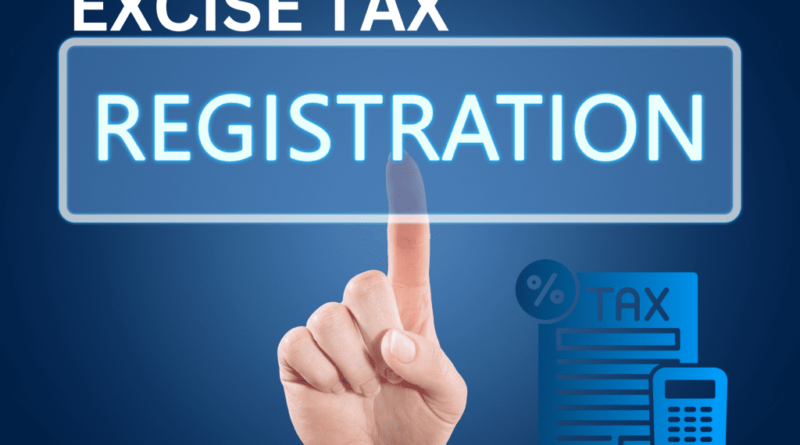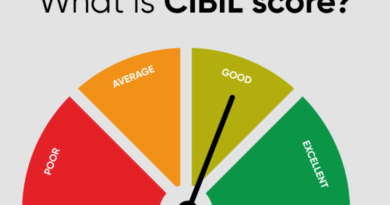Excise Tax Compliance: What Businesses Need to Know
Taxation, often, feels like a complicated task, but it has its own benefits. The United Arab Emirates has different kinds of taxes in its tax system that are intended to regulate economic activity and generate income. Excise tax is one of them that applies to various commodities and serves different purposes. In this comprehensive guide, we will cover everything you need to know about excise tax compliance in the UAE and how you can register your business for Excise Tax.
Excise Tax in the UAE
Introduced in the year 2017 in the UAE, the Excise tax is an indirect tax levied on specific commodities that are considered harmful to human health or the surrounding environment in the long run. The key purpose of introducing this tax is to diversify the revenue sources for the government and use the money for beneficial public services. Furthermore, levying high excise taxes will reduce the consumption of unhealthy and harmful commodities and encourage people to make healthier living choices.
The commodities categorized as “Excise Goods” are as follows:-
- Carbonated drinks (50% tax)
This category comprises aerated beverages or aerated and flavored water, including any concentrations, extracts, gel, or any powder used to prepare aerated beverages.
- Tobacco and tobacco products (100% tax)
This category includes all the goods which consist of tobacco.
- Energy drinks (100% tax)
This set includes beverages consisting of Ginseng, Caffeine, Taurine, and/or Guarana. It also covers concentrations, gels, powders, extracts, etc. that are converted into an energy-enhancing drink.
In January 2019, the government of the UAE announced new categories of products that will be covered under the Excise Tax:-
- Drinks containing artificial sweeteners and other Sugar-Sweetened Beverages (50% tax)
- Vapes or any kind of electronic smoking devices or tools (100% tax)
- Liquid used to make electronic smoking devices or tools (100% tax)
On the other hand, the following products are excluded from the purview of the excise tax in the UAE:-
- Ready-to-drink beverage (75% milk or milk substitute)
- Baby Food and Baby Formula
- Beverages consumed for special dietary needs
- Beverages consumed for medical use
Businesses eligible for Excise Tax Registration
Companies need to fulfill the specific criteria provided by the UAE government to be eligible for excise tax compliance. According to the UAE Federal Law Decree-Law No. 7 of 2017 on Excise Tax, companies undertaking any of the following activities need to register for Excise Tax:-
- Import of the Excise Goods into the UAE
- Storing of Excise Goods in the UAE
- Production of Excise Goods in the UAE
- The entity managing an Excise warehouse
The businesses eligible for excise tax registration must ensure that all the obligations related to excise tax compliance are duly fulfilled. The Federal Tax Authority (FTA) has the right to conduct an audit of such businesses and impose penalties if they violate compliance. Hence, to avoid such circumstances, businesses can seek excise compliance services in Dubai that can help them adhere to the excise tax laws and regulations and complete their tax obligations without any delays and errors.
Steps to register for Excise Tax in the UAE
Here are the steps to successfully register for Excise Tax UAE:-
Determine your eligibility for registration – First and foremost, determine whether you are eligible to register for excise tax. If your business is involved in the production, import, or sale of goods specified by the FTA authorities, then you may have to register for excise tax.
Obtain a TRN – Before registering for excise tax, you need to obtain a tax registration number (TRN) from the FTA, online through their e-Services portal.
Fill in the registration form – Once you obtain your TRN, get started with the registration process. Access the excise registration form through the e-Services portal and fill in the required details.
Provide supporting documents – Along with the registration form, you need to provide certain documents, such as the trade license, proof of address, and other documents related to your business activities.
Submit the application – After filling out the registration form and gathering all the supporting documents, submit them to the FTA through their online portal. The authorities will then review your application and notify the status of the same, whether it is approved or rejected.
Complete the mandatory training – Once the application is approved, you are required to complete a mandatory online training course related to excise tax compliance. This training will help you understand your duties and responsibilities under the excise tax regime.
Comply with the excise tax obligations – After completing the training course successfully, make sure to comply with the excise tax obligations such as timely submission of tax returns, payment of taxes, etc.
Records to be maintained for excise tax compliance in the UAE
A tax-registered entity must maintain the following documents to ensure compliance with the excise law in the UAE:-
- Records of all imported, produced, or stored Excise products/ goods
- Records of excise goods sold and exported outside the UAE
- Details of physical inventory held by the taxable entity
- Records of excise goods that are lost or destroyed
- Proof of taxes due on excise goods imported/manufactured by the taxable entity in the UAE
- Proof of taxes due on excise goods purchased or produced for stockpiling
- Proof of tax deducted/paid and submitted on excise goods sold outside the UAE
- Item-wise details of excise goods (in the context of value and quantity) physically kept by the taxable person
- Information concerning the average monthly inventory held by the taxable entity
- Details regarding average monthly sales for each excise commodity
- Details concerning excise goods manufactured by the taxable entity
- Information regarding excise products purchased from outside the UAE (Import) by the taxable entity
- Item-wise details of Excise goods produced and imported by the taxable entity
- Item-wise details of Excise goods sold locally and outside the UAE (Export) by the taxable entity
- Item-wise details of Excise goods released from the designated zone
- Details of the companies and retailers to whom the excise products are sold
Impact of Excise Tax on Economy and Consumers
The implementation of excise tax in the UAE has led to a profound impact on the economy as well as the consumers.
- The reevaluation of pricing models influences consumer demand, deterring them from purchasing excise items.
- The need to adhere to tax regulations and the maintenance of precise records elevates the operational expenses within the organization.
- The escalation in the cost of items such as tobacco and sugary beverages dissuades their consumption and fosters healthier alternatives.
- It affects the import/export dynamics by making businesses consider the tax consequences when importing or exporting taxable items.
- It allows businesses to modify their sourcing strategies in order to mitigate tax liabilities.
- It affects trade relations by encouraging nations to enforce disciplinary measures or negotiate trade agreements based on tax policies.
Conclusion
Hence, to ensure excise tax compliance, businesses need to understand their obligations and comply with the relevant regulations. By following the defined criteria and seeking guidance from the tax experts of Shuraa Tax, you can ensure that your business stays compliant and safe from any legal issues.
If you have more queries regarding excise tax or need more information, seek expert excise compliance services in Dubai. Shuraa Tax Consultants and Accountants specialize in offering various services including excise tax services, accounting, auditing, Value Added Tax services, payroll, and more. Reach out to www.shuraatax.com




